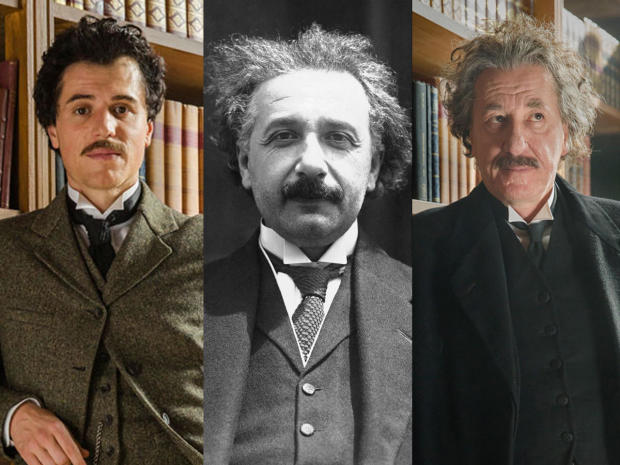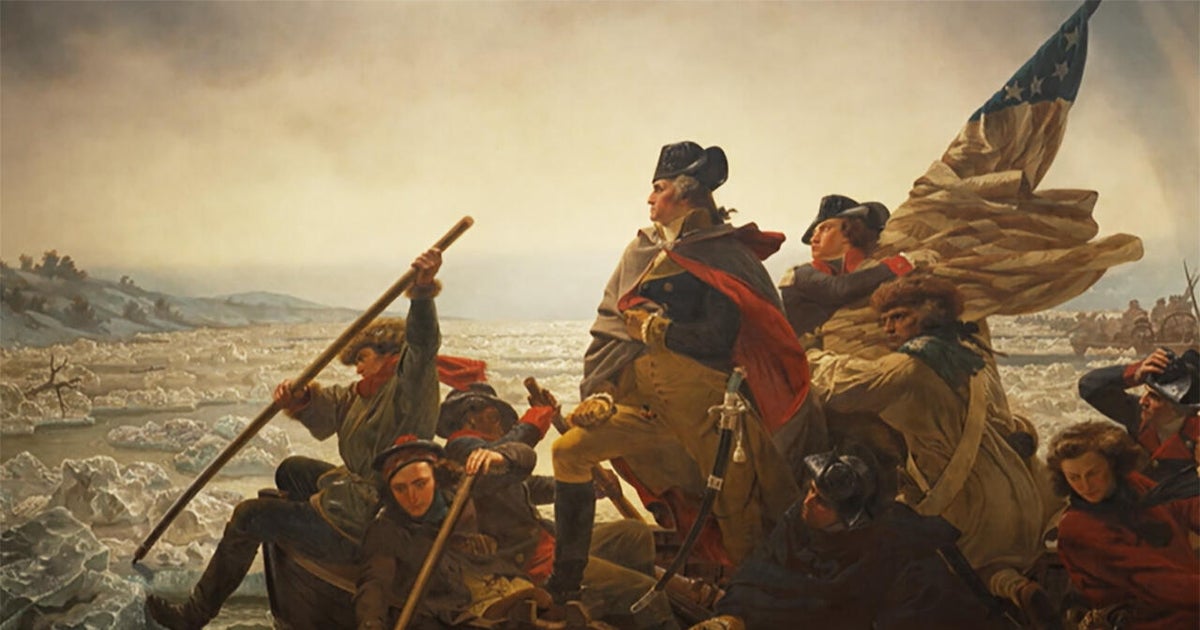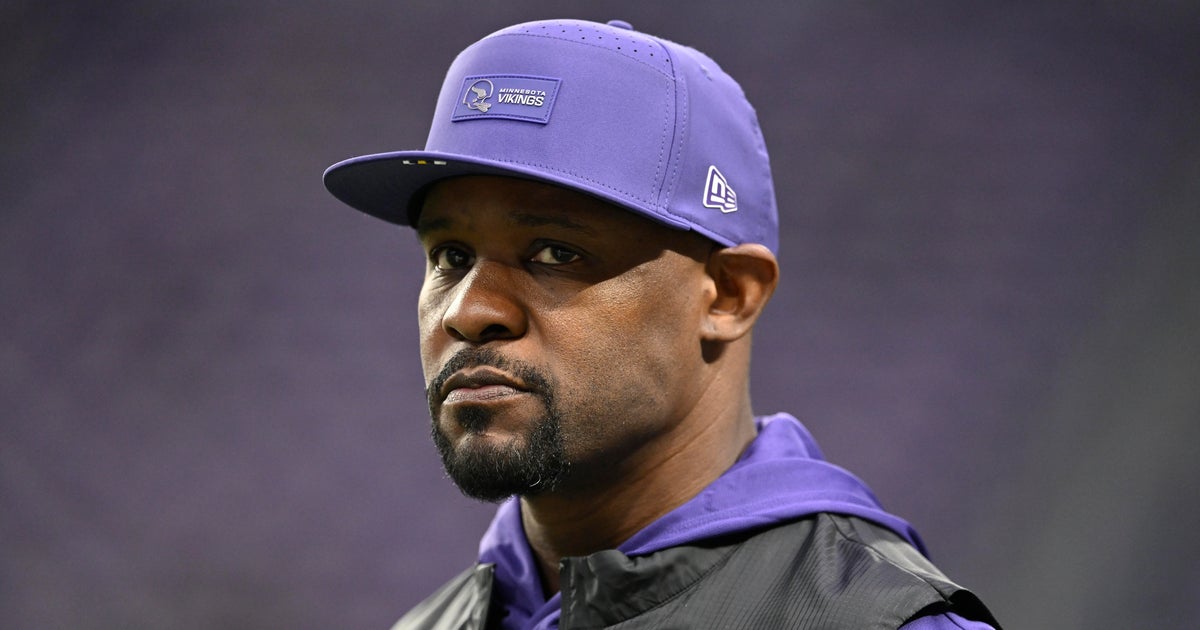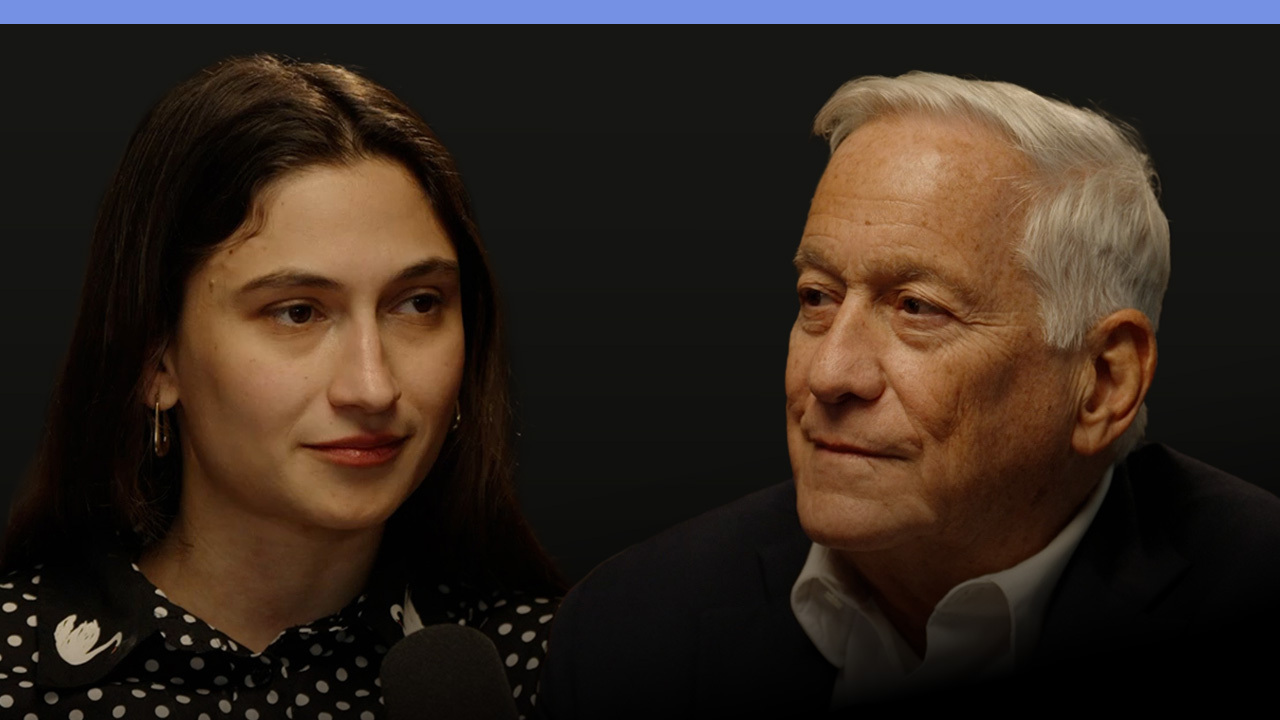The real Einstein
e=mc2 is an equation made famous by Albert Einstein. His mind-bending theories have long been the stuff of textbooks. Now, Faith Salie tells us, the complexities of his life have become the stuff of a made-for-TV series:
In scientific circles, stars don't get any bigger than Albert Einstein. (Not on this planet anyway.)
"Einstein was the first great scientific celebrity," said Walter Isaacson. "So beginning in the 1920s he would come to America. Crowds would come out to see him. It was pretty odd for a theoretical physicist."
Isaacson has chronicled the life of Einstein, who born in Germany in 1879. "He's brilliant, but he's also like your uncle: He can't quite remember where he's left his shoes, and he needs to know the rules of baseball, and he's fun with kids helping them. He wasn't some strange genius from a different planet. He was human."
Einstein's "Genius" is the subject and title of a new series on the National Geographic Channel based on Isaacson's book. It stars Geoffrey Rush as Einstein, and Johnny Flynn portrays the scientist as a young man.
To watch a recap of Episode 1 of "Genius," click on the video player below.
It turns out Einstein's life was as unconventional as his theories. "Einstein was a total rogue in his personal life," Isaacson said. "He was a runaway. He always got in trouble with his teachers. Falls in love with this wonderful physics student. They have a child before they're married. All of these things are this rebellious, impudent nature, which I think also leads him to challenge the basic tenets of science."
Einstein upended more than two hundred years of scientific thinking when he uncovered the mechanics of gravity in 1915.
"Everybody thought that gravity was basically an old subject, completely figured out by Isaac Newton, the old apple-falling-on-the-head thing," said Columbia University physicist Brian Greene.
"Here comes Albert Einstein [who] says, 'I have a radically new way of thinking about gravity. Newton's is just an approximation to this more spectacular picture in which space and time warp and curve.'"
Greene brings to life Einstein's quest to uncover the structure of the universe in a theatrical production called "Light Falls."
"Einstein is hot on the trail of the general theory of relativity, and I gotta tell you, as I read these pages as a physicist, even though I kind of know how it all turns out, I am cheering Einstein on!"
Einstein's theory was so revolutionary and new that it triggered a lot of old-fashioned bigotry.
"There were Nobel laureates who described it as Jewish physics," Greene said. "But in the end of the day, data is what speaks in science. Doesn't matter what you think, what you believe. If your ideas make predictions that are borne out by observations or experiments, the community of scientists looks and says, 'That's the right direction to go.'"
In 1933, Einstein was visiting the U.S. when Hitler seized power. Instead of returning to Germany, he settled in Princeton, New Jersey, where he lived until his death in 1955.
To this day, we have Einstein to thank for GPS, solar panels, weather forecasting, digital cameras, and even the dawn of the nuclear age.
"Most of us think of science as, 'Well, it's the cold, hard facts,'" said Greene. "But Einstein was there with heart and soul."
Isaacson said, "Scientists should be heroes. They're real people. They're magical. And they have a certain beauty to what they do."
For more info:
- "Genius" (National Geographic Channel)
- "Einstein: His Life and Universe" by Walter Isaacson (Simon & Schuster); Also available in eBook, Unabridged Audio Download, and Unabridged Audio CD formats
- Brian Greene, Columbia University
- briangreene.org
- Albert Einstein biography at nobelprize.org




